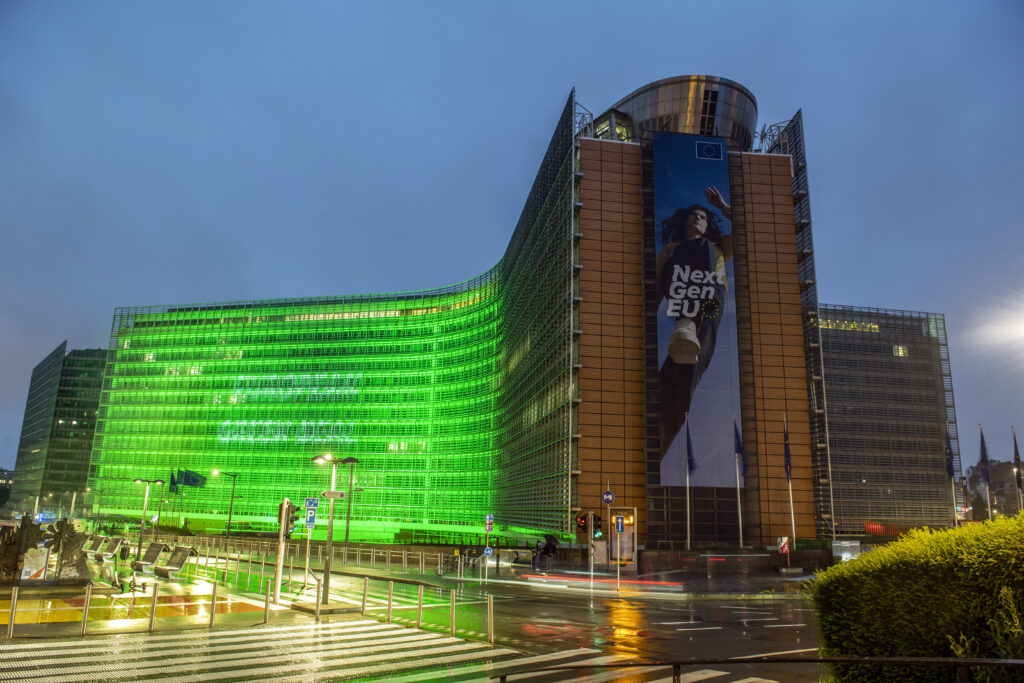How to make the EU’s ‘Fit for 55’ package fit for purpose
The following article by ePURE Secretary-General Emmanuel Desplechin appears in the Winter 2021 edition of European Energy Innovation magazine, which can be viewed here.
The European Union has set important new goals for decarbonising transport, a sector in which emissions have kept increasing but where failure is not an option in the drive to carbon neutrality.
The legislative proposals in the European Commission’s so-called ‘Fit for 55’ package – touching on everything from EU renewable energy policy to car emissions standards to energy taxation – are certainly wide-ranging. But unfortunately they do not always give enough of a role to a proven decarbonisation solution: renewable liquid fuels such as European ethanol.
Enabling biofuels is common sense
Fully enabling biofuels in the drive to carbon-neutrality is just common sense. Even under a scenario in which electric vehicles make rapid gains in market share and the sale of internal combustion engines is phased out, the EU car fleet will consist predominantly of vehicles that run fully or partly on liquid fuel in 2030 and beyond.
For these petrol and hybrid cars, the EU has a ready-made, homegrown solution: renewable ethanol is the most immediate, cost-effective, sustainable and socially inclusive way to reduce emissions. Europe cannot afford to ignore this important part of the Fit for 55 equation.
International organisations agree that achieving carbon-neutrality by 2050 will require a massive uptake of sustainable biofuels. To that end, the EU should fully maximise the tools it has on hand to move beyond fossil fuel – starting with the Renewable Energy Directive but also including other key Fit for 55 legislative priorities.
Renewable ethanol is a proven solution
As one of the best such tools, European ethanol must be considered more than just a ‘transition fuel’ or ‘stopgap solution’ in the EU’s planning. It is a proven solution that is already delivering results for decarbonisation but could do a lot more even in the years to come.
- Ethanol is immediate: Europe should not have to wait for new technologies to mature. Renewable ethanol reduces emissions from today’s vehicles – more than 75% on average, compared to fossil petrol – and from the vehicles that Europeans keep buying and driving.
- Ethanol is cost-effective: The increased use of ethanol to decarbonise transport requires no expensive new infrastructure; it can be scaled up easily in a way that also benefits the EU economy and food security.
- Ethanol is sustainable: The European Commission regularly confirms the sustainability of EU crop-based biofuel production, finding no correlation between food prices and biofuel demand and low adverse environmental impact of feedstock production.
- Ethanol is socially inclusive: By embracing all sustainable solutions to decarbonisation, the EU would empower more people to contribute positively to carbon-neutrality and avoid a potential backlash from mandating new technologies before they are economically viable.
The urgency of the need to decarbonise EU transport is unquestioned. Simply put, when it comes to reducing transport emissions, Europe cannot afford to wait.
The new, higher ambitions under Fit for 55 make it even more important for EU to unleash ethanol’s potential to contribute to this effort. But the European Commission keeps finding ways to hamstring the ability of Member States to achieve those goals – for example by relying on outdated sustainability arguments to justify capping the contribution of crop-based biofuels and excluding them from decarbonisation efforts in the maritime and aviation transport modes.
The main questions about the sustainability of biofuels were settled after the EU adopted the last revision of its Renewable Energy Directive in 2018 by phasing out high ILUC-risk biofuels, namely palm-based biofuels. It is now firmly established that deforestation and outdated ‘food vs. fuel’ arguments do not apply to EU renewable ethanol produced from European crops.
Now that sustainability issues have been settled, the EU should unleash the potential of truly sustainable crop-based biofuels and encourage the wider deployment of advanced biofuels.
Fit for 55 policy choices
EU leaders have highlighted the importance of making sure that all Europeans can participate in the drive to carbon-neutrality – not just those who can afford certain technological solutions such as electric vehicles. That means empowering them to take advantage of a variety of solutions.
For example, the CO2 standards for cars and vans Regulation should recognise the benefits of using renewable fuels such as ethanol to reduce the carbon-footprint of vehicles on the road. The Energy Taxation Directive should incentivise renewable fuels, with prices at the pump encouraging renewable fuel over fossil.
Boosting renewable ethanol use generally would also maximise the contribution of EU agriculture and industry to achieving climate and energy objectives in several ways.
It would ensure a socially just decarbonisation of transport energy, by maximising renewable ethanol GHG savings and improving urban air quality. It would bolster energy security by replacing imported fossil petrol with EU domestic ethanol.
Importantly, increase use of renewable ethanol would also support agricultural production and rural development by sustaining more than 50,000 EU jobs, most of which are in rural areas. It would help diversify farmer incomes.
It would also support Europe’s food independence by reducing the EU’s protein deficit thanks to the production of GMO-free protein-rich feed co-products. And it would support innovation and the transition towards the circular bioeconomy with biorefineries in Europe.
Making Fit for 55 fit for purpose requires using proven, sustainable solutions such as renewable ethanol – especially as the need to reduce road transport emissions becomes more urgent.
